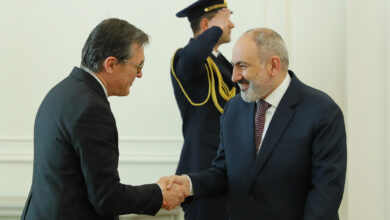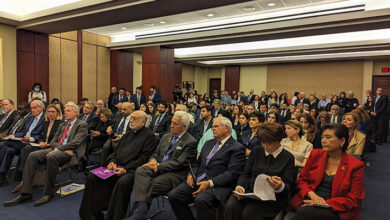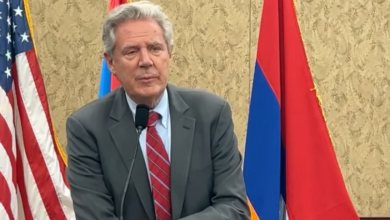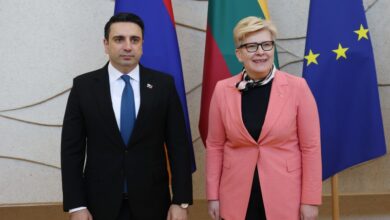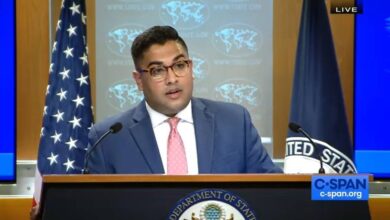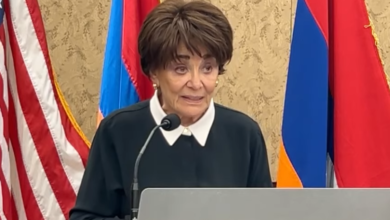Radio Vatican: Nagorno Karabakh – the forgotten war
In the aftermath of the summit between Armenian and Azerbaijani Presidents Serzh Sargsyan Azeri and Ilham Aliyev in Vienna, Radio Vatican’s Francesca Sabatinelli interviewed Simone Zoppellaro, Armenia Correspondent and Contributor for Osservatorio Balcani e Caucaso (Balcan and Caucasus Observatory).
According to him, the meeting of the two Presidents after the April clashes, the worst ceasefire violation since 1994, was an important sign. The Presidents agreed to meet again next month and it is hoped this will lead to a peace agreement.
But what has so far prevented, and what still prevents the peace agreement? Zoppellaro said “Interests of many actors in the field, internal and external respect to this conflict collide. Azerbaijan is a particularly rich state oil and gas country and has one family, that of Aliyev, in power since 1969. The Karabakh conflict is used by this family in power to justify the various limitations of freedom.”
“Then there is Russia which is officially allied with Armenia, but sells weapons to Azerbaijan. So Russia is playing a double game, because it maintains an important presence in the South Caucasus. Europe and America have had, instead, a great indifference to this conflict and have never really tried to fix it. So, unfortunately, this situation has dragged on for a quarter of a century,” the journalist said.
He said that putting an end to this tension, these deaths seems to be on no one’s agenda. “It’s not really on the agenda of anyone! Recall that, among other things, for this conflict we had over 30 thousand deaths, over one million of refugees and displaced persons; the damages that we can imagine for the economy, for freedom, for equality of these two small countries, but they are also part of the Council of Europe, so Europe should also have a much more cooperative attitude, a much larger engagement in the conflict.
“I visited the village of Talish, which has become a ghost town after the April raids; the entire population is displaced; schools destroyed; homes destroyed; many dead, wounded, injured. And then I visited the trenches, which are another scene very impressive, also because it brings us back a hundred years ago, to what happened in Europe during the First World War. We still have today, a hundred years after the First World War, the trenches in which young people, day after day, burn their lives and face death. And all this is a really forgotten war,” Simone Zoppellaro said.
He said the Pope’s expected visit to Armenia is seen as a sign of great hope for this conflict. He believes that religion can also be a positive element for its resolution.


